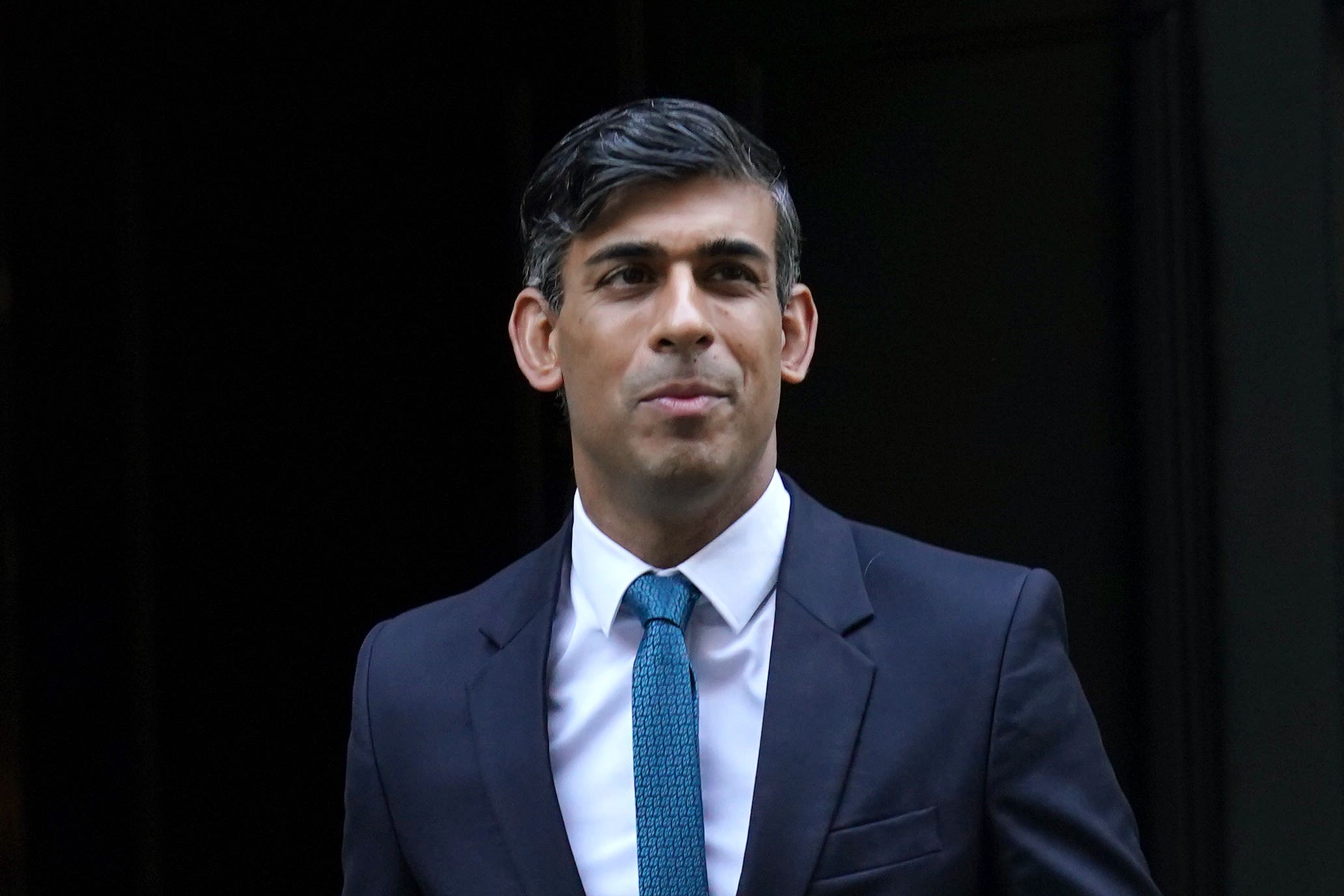Rishi Sunak has lurched to the right on immigration – but it won’t solve his problems
Editorial: The prime minister has been pressured into a handbrake turn by noisy, right-wing Conservative MPs

The government has pressed the panic button after official figures last month showed that net migration has tripled since the 2019 election, rising to a record 745,000 in 2022 and 672,000 in the 12 months to June this year.
Rishi Sunak has been pressured into a handbrake turn by noisy, right-wing Conservative MPs and even ministers such as Robert Jenrick, the immigration minister – once a close ally of the prime minister – who has picked up the baton after Suella Braverman’s sacking.
The appointment of James Cleverly as her successor raised the hopes of centrist Tory MPs that a sensible approach to immigration would prevail. But the home secretary has now announced what he called “the biggest-ever reduction” in legal migration to reduce it by 300,000 on last year’s figure.
Although he rightly rejected right-wing demands for a cap on migrants, the salary threshold for overseas skilled workers will increase from £26,200 to £38,700 from next spring. The government will end the 20 per cent going-rate salary discount for workers coming to the UK in shortage occupations.
Most worryingly, overseas care workers, who are exempt from the threshold, will be barred from bringing family dependants with them. The right of international students to bring dependants will be scrapped unless they are on postgraduate courses designated as research.
The package is an overreaction. Mr Sunak knows the number of arrivals in the last two years has been swollen by one-off emergencies such as events in Hong Kong and Ukraine. Experts say the figure will fall. But there is an election coming.
The Tories, who pledged to cut net migration to below 100,000 a year at the 2010 election, have woefully failed to honour a promise which helped to persuade some people to vote Leave at the 2016 EU referendum. Now the government has “taken back control”, it has no one else – like the EU – to blame for the numbers.
Ministers knew their measures would have adverse consequences, yet still ploughed ahead. It seems the right hand and left hand of this government are pulling in different directions – under a prime minister who promised both stability and to take the right long-term decisions for the country.
Ending the ability of foreign care workers to bring family members with them will add to the crisis in a sector with 152,000 vacancies which is heavily dependent on overseas staff. Mr Cleverly admitted his move might deter some carers with families from coming to the UK but hopes that workers without families will fill the gap. He has ignored warnings from the care sector and taken a reckless gamble.
Deepening the problems in social care will heap yet more pressure on the NHS. That does not make political sense when Mr Sunak is struggling to honour his pledge to cut record waiting lists.
Will the government provide more resources to local authorities, several more of which are close to running out of money, so that care homes can raise wage levels and attract more UK workers? Not when Jeremy Hunt’s priority is pre-election tax cuts.
Reducing migration will also harm economic growth, already forecast to be at zero in the election year of 2024 by the Bank of England. The latest clampdown on foreign students will potentially put at risk the funding model of our universities. Will the government rush to bail them out? No.
The government is living – or perhaps surviving – from day to day, without thinking through the consequences of its actions. We, and the country, expected better of Mr Sunak.
Unfortunately, there are more headline-grabbing stunts to come. Mr Sunak has unwisely decided to double down on the flawed proposal to send asylum seekers to Rwanda, despite the Supreme Court ruling it illegal.
Mr Cleverly is heading to Kigali to sign a new treaty, and legislation in the UK parliament will declare Rwanda a safe country. Ministers tell jittery Tory MPs to trumpet a 30 per cent fall in the number of migrants crossing the Channel this year and stop banging on about Rwanda. Yet it was the government who repeatedly raised unreal expectations that the scheme could “stop the boats”.
The suspicion is that the prime minister’s moves are partly about bolstering his position in his own party. He has slumped to an embarrassing bottom place in a league table of how Tory party members rate ministers, with a net satisfaction rating of -25.4 per cent.
Mr Cleverly, a potential future leadership contender, has dropped from top spot to 22nd in a month after becoming home secretary.
The Tories are also spooked by an uptick in the polls for Reform UK, the successor to the Brexit Party, and the presence of Nigel Farage on our television screens.
But if Mr Sunak thinks that lurching to the right on immigration is the answer to his mounting problems, he will be disappointed.






Join our commenting forum
Join thought-provoking conversations, follow other Independent readers and see their replies
Comments